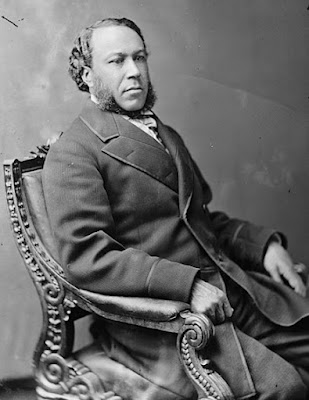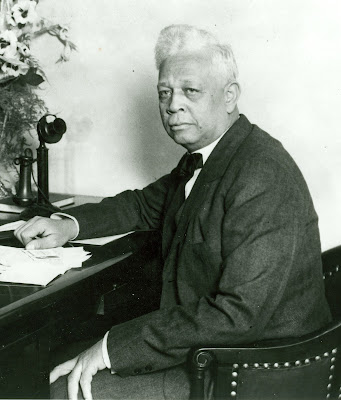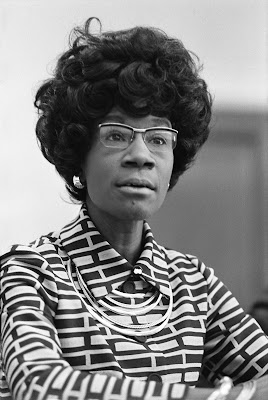Good Trouble in The People’s House
by Gregg Chadwick
Review of Courage in The People's House: Nine Trailblazing Representatives Who Shaped America by Joe Neguse
Courage in The People's House: Nine Trailblazing Representatives Who Shaped America by Joe Neguse is the latest in a line of must-read books about the history of political thought and action in the United States. Joe Neguse, the first Black American elected to the House of Representatives from Colorado, tells the stories of nine folks who stepped up and served their communities and country as elected representatives in Congress. Neguse explains that “the People's House fulfills the founders' intent as the most democratic part of our federal government. And true to form, over the decades this system has worked to open up access to more of our citizens.”
Neguse deftly tells the stories of nine groundbreaking Congressional Representatives:
Joseph Rainey from South Carolina was the first Black person to serve in the United States House of Representative where he fought to pass laws that guaranteed equality for all in the United States.
Neguse quotes Rainey as he spoke to his fellow Congressional Representatives: “Why is it that the colored members of Congress cannot enjoy the same immunities that are accorded to white members? Why cannot we stop at hotels here without meeting objection? Why cannot we go into restaurants without being insulted? We are here enacting laws for the country and casting votes upon important questions; we have been sent here by the suffrages of the people, and why cannot we enjoy the same benefits that are accorded to our white colleagues on this floor?.... Why this discrimination against us when we enter public conveyances or places of amusement? Why is a discrimination made against us in the churches; and why in the cemeteries when we go to pay that last debt of nature that brings us all upon a level?
Gentlemen, I say to you this discrimination must cease.”
Josiah Walls from Florida was the first African American elected to the U.S. Congress from the Sunshine State and the only Black Representative from Florida until the early 1990s. During the Civil War, Walls joined the Third Infantry Regiment of the U.S. Colored Troops in time to fight during the assault on Fort Wagner, South Carolina in July 1863. Walls campaigned in Congress for universal education throughout the U.S.
Neguse informs us that “In his first term in Congress, Walls pushed hard for education and the economic development of his state. He was a prolific legislator, introducing more than fifty bills as a member of Congress, many of them for improvements in Florida, and won a number of victories.
He proposed new mail routes that sped postal service, new customs houses, navigational improvements, lifesaving stations, telegraph lines, and a rail link to a port that would aid transportation to Cuba. And he received widespread praise in Florida's newspapers for his efforts.”
William B. Wilson from Pennsylvania was an immigrant from Scotland who worked as a child laborer in the coal mines of Pennsylvania and later became a labor leader and progressive politician. Wilson was elected to Congress and later served as the first Secretary of Labor from 1913 to 1921.
Wilson’s inspiring words are as true today as they were in 1920s America: “The men who seek money are always doomed sooner or later; the men who seek power or fame are continually taking chances and running risks of disaster; but those who are actuated by a simple desire to serve are the ones who ultimately win. The paths of such men may be long and tedious. It may be necessary for them to go through sloughs of despond and to climb treacherous heights; but by keeping the one star in mind they ultimately win, and become an honor to their families, to their communities, and to their nation.”
Adolph Sabath from Illinois was an immigrant from what is now the Czech Republic who became a tireless fighter for immigrant rights in the United States. Sabath served in the U.S. House from 1907 to 1952. Sabath’s celebration of immigrants in the U.S. is deeply inspiring – “Due to immigration, our country is the wonder of civilization. Its population is made up of all the peoples of the earth. We have all races, all religions, all nationalities. They have come to us from all quarters of the globe, and we have the best.”
Oscar Stanton De Priest from Illinois was the first African American to be elected to the House of Representatives in the 20th century. During his three terms, he was the only Black American serving in the House and had to battle against segregationist policies and racism within the U.S. Capitol Building. In a fervent speech before Congress he exclaimed, “The restaurant of the Capitol is run for the benefit of the American people, and every American, whether he be Black or White, Jew or Gentile, Protestant or Catholic, under our constitutional form of Government is entitled to equal opportunities. If we allow segregation and the denial of constitutional rights under the dome of the Capitol where in God's name will we get them?"
Margaret Chase Smith from Maine was elected to the House and also the US Senate thus becoming the first woman to serve in both houses of Congress.
In 1950, during McCarthy’s Red Scare, Margaret Chase Smith delivered in the Senate Chamber a stirring rebuke against McCarthyism in which she defended American citizens’ rights to criticize, to hold unpopular beliefs, and to protest: “The United States Senate has long enjoyed worldwide respect as the greatest deliberative body in the world. But recently that deliberative character has too often been debased to the level of a forum of hate and character assassination sheltered by the shield of congressional immunity . . . I do not like the way the Senate has been made a rendezvous for vilification, for selfish political gain at the sacrifice of individual reputations and national unity."
Neguse deftly describes the moment as Smith concluded her speech – “She called for the body to remember American principles of free speech and fairness, she did not mince words. It was time, she stated plainly, for her party to disavow ‘t]he four horsemen of calumny- fear, ignorance, bigotry, and smear.’ The eyes of the reporters were transfixed on McCarthy, sitting a mere three feet away, as he turned pale and grim. He rapidly left the chamber as Smith finished her speech.”
Henry B. Gonzalez from Texas was the first Hispanic American ever elected to Congress from the Lone Star State. Neguse paints a vivid picture of Gonzalez’s road to the People’s House: “His parents were political exiles from Mexico and had hoped to return there, even after Henry was born in 1916, but they never did. An avid student of American history and the Constitution at an early age, he learned to speak English during the first grade in San Antonio and spent his days at the local library, reading history, literature, and classic texts in English. To eliminate his accent and improve his public speaking voice, he practiced with pebbles in his mouth in front of a mirror, after learning from his reading that the Greek orator Demosthenes had done the same. At home he read widely in Spanish, as well, devouring books brought home by his father, Leonides, who was editor of a Spanish-language daily newspaper.”
During the Vietnam War, Gonzalez was concerned that too much war making power had been given to the U.S. President: “If the president has unlimited foreign as well as domestic powers, what remains to prevent the development of a police state?
What remains to keep the government from assuming all power in the name of one man? The answer is that Congress must share the power. The president may not like this, but if we want this government to survive, that is the way it has to be. When the flexibility and suppleness of the Constitution are gone and power is no longer divided, the revolution will be over, and the king will be restored to his throne.”
Shirley Chisholm from New York was the first black woman to be elected to the United States House of Representatives. Chisholm represented New York's 12th congressional district for seven terms from 1969 to 1983. The powerful words of Shirley Chisholm exemplify courage:
“I ran for the presidency, despite hopeless odds, to demonstrate sheer will and refusal to accept the status quo.”
Fighting Shirley Chisholm: Unbought and Unbossed.
Barbara Jordan from Texas was the first African American elected to the Texas Senate after Reconstruction and the first Southern Black woman elected to the United States Congress.
Jordan’s courageous speech during the Watergate hearings in 1974 still resonates today – “Earlier today, we heard the beginning of the Preamble to the Constitution of the United States, 'We the people.' It is a very eloquent beginning. But when that document was completed on the seventeenth of September in 1787, I was not included in that 'We the people.' I felt somehow for many years that George Washington and Alexander Hamilton just left me out by mistake. But through the process of amendment, interpretation, and court decision I have finally been included in 'We, the people.' Today, I am an inquisitor. I believe hyperbole would not be fictional and would not overstate the solemnness that I feel right now. My faith in the Constitution is whole, it is complete, it is total. I am not going to sit here and be an idle spectator to the diminution, the subversion, the destruction of the Constitution.”
Power concedes nothing without a struggle
Neguse concludes his book by encouraging Americans to get involved, to support democracy, and to vote in every election. - “As citizens, we each have a solemn responsibility to contribute to this magnificent experiment in self-governance.”
Neguse reminds us that one of Shirley Chisholm’s favorite maxims was proclaimed by Frederick Douglas when he said that, “Power concedes nothing without a struggle.”
And John Lewis was always willing to get into Good Trouble when he was seeking positive change.
Joe Neguse’s inspiring book Courage in The People's House: Nine Trailblazing Representatives Who Shaped America vividly opens up dusty copies of the Congressional Record and brings the stories of American changemakers to life.
Highly Recommended!
* All photos, unless noted, courtesy of the Library of Congress.
















Comments